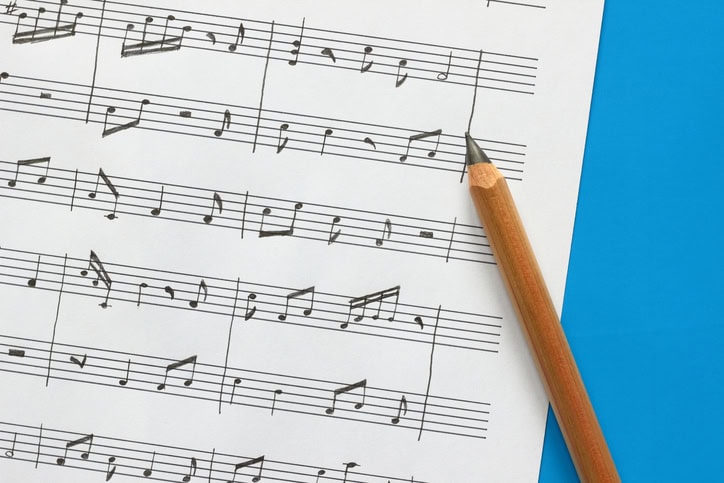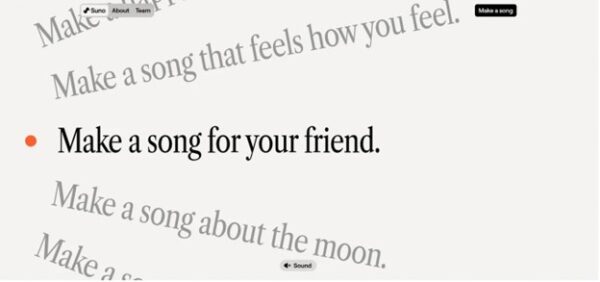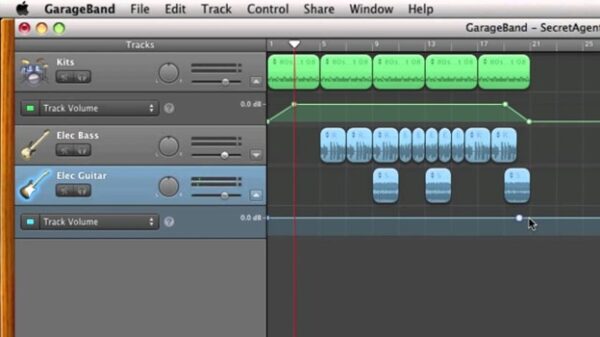/ News Posts / Creativity and AI: Process over Product
Creativity and AI
Process over Product
By Jim Frankel
This blog is sponsored by NAfME Corporate member MusicFirst.
A few weeks ago, I came across a thought-provoking post on LinkedIn by Jack Diserens. His post discussed retention and pride when using AI music composition tools like Udio and Suno. His argument was that since these tools make it so easy to “compose” music—requiring little to no effort—users don’t feel invested in the final product. Without the effort of creating, there is no sense of pride, leading users to experiment briefly and then move on. This insight highlights a fundamental aspect of creativity: the value of process over product.
The Importance of Process in Creative Work
Whether in music, art, or any other creative pursuit, the process of creation plays a crucial role in our connection to the final product. Have you ever experienced the thrill of composing a piece of music that truly resonates with you? That sense of ownership and excitement doesn’t come from simply clicking a button and generating a song. It comes from the process of crafting, refining, and personalizing your work. AI composition tools, by eliminating much of this effort, also remove the deep sense of accomplishment that comes with creating something uniquely yours.
A Personal Parallel: Homebrewing
For nearly 30 years, I’ve been an avid homebrewer. I started with simple “Duncan Hines-style” recipe kits in my kitchen and have since progressed to a professional brewing setup. Over the years, I’ve brewed hundreds of batches, and the most common question I receive is: “What’s your favorite beer to brew?” My answer is always the same: whatever I’m currently brewing.
What I love most about brewing isn’t necessarily drinking the beer but the process itself—the cleaning, the formulation of recipes, the brewing steps, and the anticipation of sharing it with others. Brewing takes time, effort, and attention to detail. The final product is just a bonus. I find that the creative process in brewing mirrors that of composing music—both require an investment of time and creativity, leading to a deep sense of satisfaction.
The Creative Process in Music Composition
Composing music follows a similar path. When I write music, I start by improvising at the piano. I might stumble upon a melody, a bassline, or a chord progression that piques my interest. From there, I refine the idea, expand upon it, and sometimes bring it into a notation program or digital audio workstation. Some pieces come together quickly; others remain unfinished. Regardless of the outcome, the journey itself is rewarding.
This is why process-oriented learning is so valuable in music education. When I taught middle school students to compose music, it took weeks for them to create something they were proud of. But that time was well spent—the process of trial, error, and discovery was where the real learning happened. Even students who didn’t consider themselves musicians gained confidence and ownership through composing their own music.
The Pitfall of AI Composition Tools
AI-powered music composition tools streamline this process to the point where creativity is almost entirely removed. Typing in a few prompts and receiving a fully composed piece might feel novel at first, but what role does the user actually play? Unlike GarageBand—where arranging loops and MIDI clips still requires decision-making and effort—AI tools generate finished compositions with minimal input. The lack of creative investment leads to a lack of personal connection and, ultimately, little sense of pride in the result.
In contrast, when students compose their own music, they experience moments of genuine excitement and ownership. I’ll never forget the joy on my students’ faces when they heard their compositions played back for the first time and immediately wanted to share them with friends. That sense of pride and accomplishment is what AI-generated music lacks.
Ethical Considerations and the Future of AI in Music
Beyond the creative limitations, AI composition tools raise ethical and philosophical concerns. Many are trained on copyrighted music without crediting or compensating the original creators. The implications of this practice are still being debated, but as educators and musicians, we must consider the consequences of these tools on artistic integrity and originality.
That said, AI can still have a place in the creative process—if used as a tool rather than a crutch. Instead of relying on AI to generate complete compositions, students can use it for inspiration. For example, they could take an AI-generated chord progression or melody and modify it, making it their own. As Diserens suggests, allowing students to reshape AI-generated music fosters ownership, which in turn drives pride, retention, and meaningful engagement.
Encouraging Process-Oriented Learning
As educators, we should prioritize teaching students the value of creative effort over instant results. AI tools may provide convenience, but they cannot replace the deep satisfaction that comes from genuine artistic creation. Encouraging students to embrace the process—whether in composing music, brewing beer, painting, or writing—ensures that they develop a meaningful connection to their work.
What do you think? How do your students view the balance between process and product?
About the author:
 Dr. James (Jim) Frankel is the Founder and Director of MusicFirst. Previously, he was the Managing Director of SoundTree, and before that he was the instrumental and general music teacher for 15 years in New Jersey Public Schools. Jim is a widely published author in various state, national, and international journals of music education. He is the author of The Teachers Guide to Music, Media & Copyright Law, co-author of YouTube in Music Education, contributing author for Critical Issues in Music Education, and co-author of Making Music with GarageBand & Mixcraft. In addition to his writing, Jim is a highly sought-after clinician and keynote speaker in the local, national, and international music education community.
Dr. James (Jim) Frankel is the Founder and Director of MusicFirst. Previously, he was the Managing Director of SoundTree, and before that he was the instrumental and general music teacher for 15 years in New Jersey Public Schools. Jim is a widely published author in various state, national, and international journals of music education. He is the author of The Teachers Guide to Music, Media & Copyright Law, co-author of YouTube in Music Education, contributing author for Critical Issues in Music Education, and co-author of Making Music with GarageBand & Mixcraft. In addition to his writing, Jim is a highly sought-after clinician and keynote speaker in the local, national, and international music education community.
Interested in exploring AI in music education? Check out MusicFirst for tools that support creativity in the classroom.
Interested in reprinting this article? Please review the reprint guidelines.
The National Association for Music Education (NAfME) provides a number of forums for the sharing of information and opinion, including blogs and postings on our website, articles and columns in our magazines and journals, and postings to our Amplify member portal. Unless specifically noted, the views expressed in these media do not necessarily represent the policy or views of the Association, its officers, or its employees.
Published Date
March 6, 2025
Category
- Lifelong Learning
- Technology
Copyright
March 6, 2025. © National Association for Music Education (NAfME.org)






